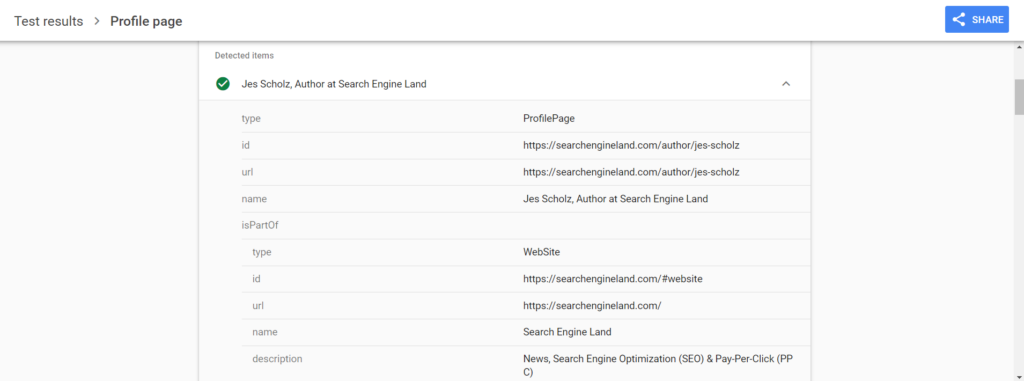SEO News Recap (Nov 17 – Dec 18): Some Really Important Things Went Under the Radar
The last few weeks were quiet – except for the last day of the November Products Review update (which was, again, a complete mess). SERPs are looking terrible. Forums are still up there, but more and more spam sites are popping up on search results. The whole SEO community is waiting for a new update because things clearly got out of Google’s hands.
As we are waiting for a new update, Google announced a few things that kinda went under the radar because everyone is so obsessed with updates and SERPs. But they actually shared a few things that are super important to be aware of, from Google’s stance on aged domains to the new structured data for authors.
ProfilePage schema is now fully supported in Google Search and Google Console
Although ProfilePage markup could be applied to your site for some time, Google now gives official documentation on how this markup works.
“ProfilePage markup is designed for any site where creators (either people or organizations) share first-hand perspectives. It allows Google Search to better identify information about the creator, such as their name or social handle, profile photo, follower count, or the popularity of their content.”

What does this mean? ProfilePage is a type of schema markup that site owners can apply to (usually) their author pages. By doing so, we are giving Google clearer information about the author (name, occupation, social profiles, bio, experience, other sites the writer worked for, etc.).
Google is then using that information to better understand the author and potentially even display that information on the SERPs. For example, both Perspectives and Discussions and forums features make use of ProfilePage markup.
Want more stuff like this?
Subscribe to our newsletter, where we share case studies, guides, discounts, and the latest SEO news! You don’t want to miss out!
NOTE: ProfilePage schema is a part of the Person schema. So, if you have Person schema applied to your authors, you are good to go. If not, I recommend checking out our course on adding Person schema to your author pages.
To check if you have the proper ProfilePage schema applied, you can now do it in Google Search Console as well:

New discussion forum schema
Now, this one is interesting. DiscussionForumPosting markup is designed for any forum-style site where people collectively share first-hand perspectives. It allows Google Search to better identify forum sites and online discussions across the web.
Forums with this markup are considered for having their content appear in the Perspective and “Discussions and forums” features. However, the use of the markup does not guarantee appearance.

There is currently no information on whether this schema can be applied to regular articles with comment sections. More importantly, even if it is applied, will it be able to pull that info and show it on SERPs?
What is certain is that Google is clearly looking to give even more value to UGC, but if you look at our screenshot from above, this type of Rich Results takes much less space than having four general site links.
So who knows, maybe in the near future we won’t even have Quora and Reddit showing up a regular search results but only under Discussion and forums Rich Result, which is a great thing!
Google’s stance on aged domains
We decided to share this tweet, but definitely don’t take it for granted. Just by having a quick look at SERPs, it’s easy to see that older sites rank BETTER, but the number of backlinks (authority) 100% has a say in this. So it’s hard to say if there is a causation there as well or only a correlation.
Back to the Tweet. Namely, someone asked John Mueller if the domain age of a site impacts search rankings. John replied this:

This “means” that the domain age doesn’t impact the rankings. But, as previously mentioned, a lot of data shows differently. For example, in Fall 2021, we bought an aged domain (10+ years) with no Google traffic. Then, you had to wait 3-9 months for the first traffic, and here is what happened to that site when we started publishing:

So yeah, do aged domains impact rankings? I wouldn’t bet that they don’t, whatever John says.
With this, we come to the end of this edition of our “SEO News Recap.” What are your thoughts on these changes? Let us know in the comments below! 👇

